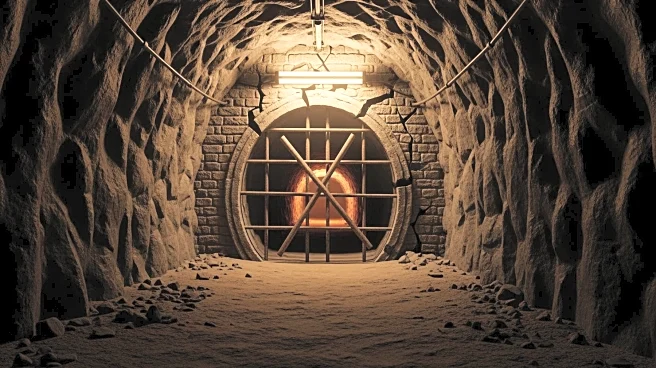What's Happening?
Israeli Prime Minister Benjamin Netanyahu has announced that he will not allow safe passage for approximately 200 Hamas fighters trapped in the tunnel systems beneath Rafah, Gaza. These fighters are reportedly
unable to retreat without risking confrontation with Israeli Defense Forces (IDF) troops. Despite reports suggesting that the fighters could exit if they surrendered their weapons, Netanyahu's office has denied any such amnesty. This decision follows backlash from far-right coalition members who were angered by the possibility of Hamas members returning to their section of Gaza without facing consequences. The situation arises amidst a US-backed cease-fire, with Israel having previously warned Hamas to retreat to their designated area in Gaza.
Why It's Important?
The refusal to grant safe passage to Hamas fighters highlights the ongoing tensions and complexities in the Israeli-Palestinian conflict. Netanyahu's firm stance reflects internal political pressures and the broader security concerns of Israel. The decision could impact the fragile cease-fire and potentially escalate violence in the region. It underscores the challenges in achieving lasting peace and the difficulties in balancing military actions with diplomatic efforts. The situation also affects the humanitarian conditions in Gaza, as continued military actions could exacerbate the already dire living conditions for civilians.
What's Next?
The immediate future may see increased military actions if the trapped Hamas fighters attempt to escape or if tensions escalate further. Israeli National Security Minister Itamar Ben Gvir has called for the IDF to arrest or kill any Hamas members found beyond the designated 'Yellow Line.' Opposition figures, such as lawmaker Benny Gantz, have also criticized any potential amnesty, emphasizing the need to prevent Hamas from reorganizing. The international community may continue to push for diplomatic solutions to prevent further violence and address humanitarian needs in Gaza.









